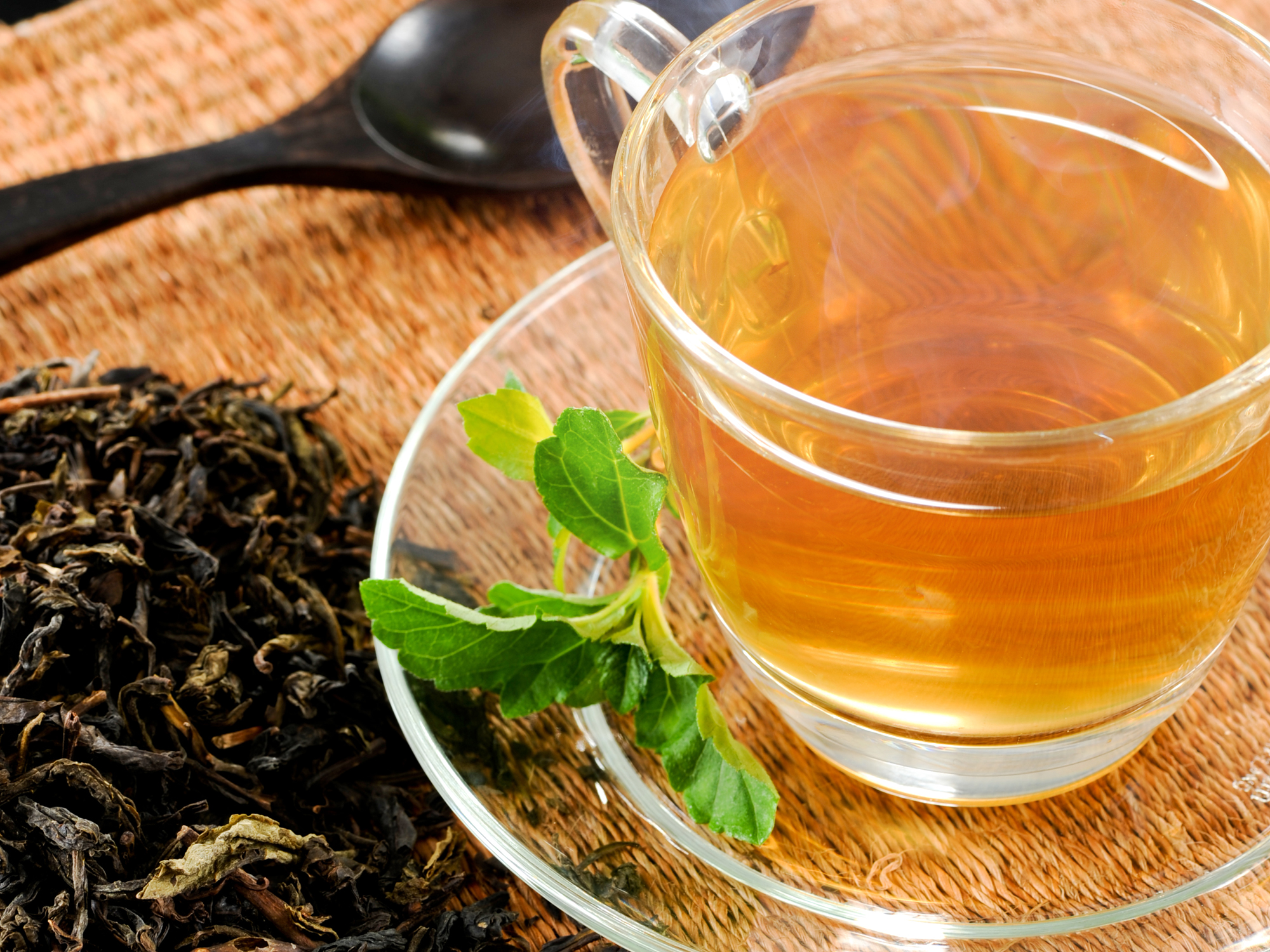Get Easy Health Digest™ in your inbox and don’t miss a thing when you subscribe today. Plus, get the free bonus report, Mother Nature’s Tips, Tricks and Remedies for Cholesterol, Blood Pressure & Blood Sugar as my way of saying welcome to the community!
The simplest way to supersize the cancer-fighting power of green tea

For years, green tea’s star was on the rise. It was the darling of the hot beverage circle — much better for you than black tea or (God forbid) coffee.
But green tea’s star power is fading. Coffee’s reputation has bounced back now that research shows it can cut the risk of diabetes, Alzheimer’s, depression, Parkinson’s, heart disease and more.
And plenty of recent studies show that black tea has the same health benefits as the green stuff… which may explain why green tea sales are slipping.
But before you toss those green tea satchels in the trash, you should know that there’s still something green tea can offer that black tea and coffee can’t — lots and lots of Epigallocatechin Gallate (EGCG).
EGCG is an antioxidant compound known for its amazing anti-cancer properties. It also helps prevent diabetes, atherosclerosis, inflammation and more.
To clarify, black tea does contain some EGCG. Green tea just contains about four times more. Coffee doesn’t contain any EGCG (but it does contain other healthy antioxidants).
In other words?
It’s probably still worth sipping on green tea from time to time just for this healthy antioxidant. But when you do, follow a simple trick to get as much EGCG as you can in each cup…
Bottled water boosts green tea’s antioxidant potential
A recent study from Cornell University revealed that you can double the EGCG content of green tea by brewing it with bottled water rather than tap. Researchers believe the difference results from the lack of minerals in bottled water.
You see, tap water contains minerals like calcium, iron, magnesium, sodium, and copper. But, according to researchers, these minerals prevent EGCG from being extracted as efficiently.
“If you’re drinking green tea for its health properties, you should be using bottled water,” said Robin Dando, study researcher and Cornell associate professor of food science.
But here’s the catch…
The thing about extra antioxidants is they make green tea taste more bitter. People who tried green tea brewed with tap water and green tea brewed with bottled water preferred the taste of the green tea brewed with tap water.
So, researchers say if you’re just in it for taste, you may want to stick to tap water. But if you’re reading this article, I’m guessing you’re not.
Getting the most antioxidants (and health benefits) from each cup of green tea
So, a healthy cup of green tea contains at least two ingredients: green tea and bottled water. But you may be wondering if there are other ways to make your green tea healthier. And the answer is…
Heck, yes!
Research shows that microwaving your green tea boosts its antioxidant content, so that’s another way to get the most from each cup.
You should also choose organic tea because non-organic teas (green or otherwise) are packed with pesticides. One study even found that green tea can raise your diabetes risk (which is confusing since other studies show it can lower diabetes risk). But researchers believe they know why green tea had a negative effect on diabetes in certain cases: the pesticides sprayed on non-organic tea.
So, go bottled, go organic, and you’ll get the best health benefits green tea has to offer.
Editor’s note: Discover how to live a cancer prevention lifestyle — using foods, vitamins, minerals and herbs — as well as little-known therapies allowed in other countries but denied to you by American mainstream medicine. Click here to discover Surviving Cancer! A Comprehensive Guide to Understanding the Causes, Treatments and Big Business Behind Medicine’s Most Frightening Diagnosis!
Sources:
- Tap or bottled? Water composition impacts health benefits of tea — MedicalXpress
- The Influence of Water Composition on Flavor and Nutrient Extraction in Green and Black Tea — Nutrients
- The latest scoop on the health benefits of coffee — Harvard Health Blog
- Does coffee offer health benefits? — Mayo Clinic
- Epigallocatechin Gallate (EGCG) Is the Most Effective Cancer Chemopreventive Polyphenol in Green Tea — Nutrients
- Tea Fact Sheet – 2018-2019 — Tea Association of the U.S.A.
- Molecular understanding of Epigallocatechin gallate (EGCG) in cardiovascular and metabolic diseases — Journal of Ethnopharmacology












